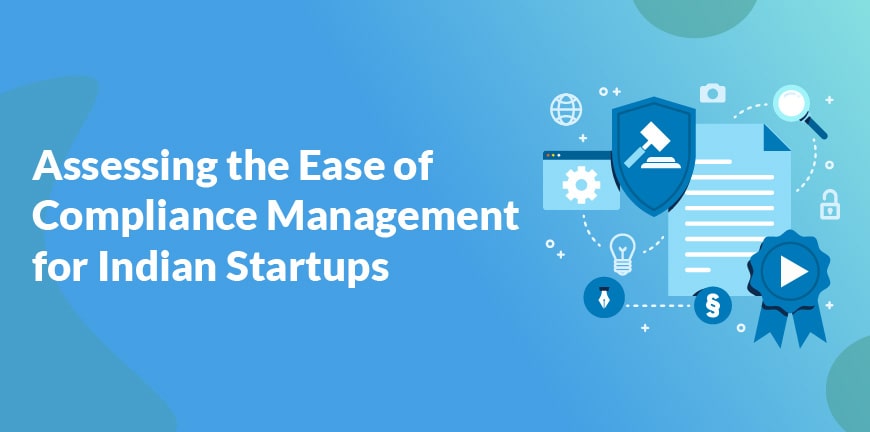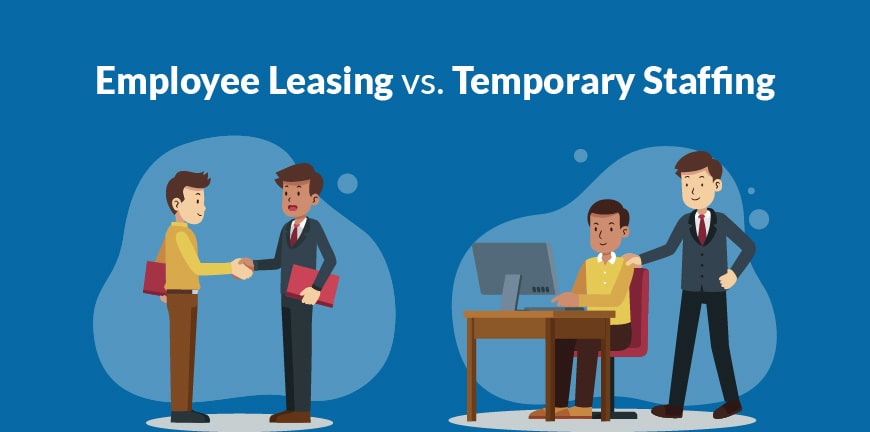
Compliance Management for Indian Startups: How Easy Is It?
22/09/2023
Employee Leasing vs. Temporary Staffing
10/10/2023Company compliance is like a Boolean value in mathematics. It’s a yes or no, but never at the same time. You are either compliant or you are not. It is an absolute necessity for companies if they wish to ensure that their reputation and the values they stand for remain intact. The cost of non-compliance is very heavy, and it is not something any company would want to bear. Let us now define compliance.
What is compliance?
Company compliance is the act of complying with a rule, policy, procedure, or law declared by a government or a regulatory body. Corporate compliance is generally managed by HR but requires the cooperation of several stakeholders and requires several things to be in order. We shall look at those in more detail in this blog.
Why is compliance important for companies?
Company Compliance management by HR helps ensure that HR policies and processes of the company are aligned with the goals set by the company and the rules imposed by the government of the country where the business is located. Ensuring compliance in HR has the following benefits:.

1. Ensures freedom from fines and penalties
Many companies may have a person handling the audit but may lack a qualified auditor. If the company lacks a qualified auditor, then it leads to a contravention of Section 139 of the Companies Act (2013), punishable with up to Rs. 5 lakh in court.
2. Provides government benefits one can claim
Any company that has more than 30 employees must have apprentices on their payroll. They must be 2.5 to 15% of the total strength of the company. This is a compliance requirement, but there are also benefits from the government under the NAPS (National Apprenticeship Promotion Scheme) that one can claim, like timely stipends to support their training and payment for work.
3. Provides guaranteed trust and quality in HR processes
Thanks to compliance, your HR functions will be top-notch, whether they are recruitment or payroll. And these in turn influence other aspects, such as employee engagement and brand reputation.
4. Improves employee engagement
Employees are more engaged with the company because they know their rights and the laws of the land are being respected and followed. They also like to work for a company where they are paid on time, given the position they were promised, and paid the right salary accordingly.
5. Improves the reputation of your brand
This is where all your efforts toward compliance come full circle. When you ensure quality in your HR processes, employee engagement improves, and you follow the laws set by the government, your reputation as a great place to work or invest also improves, and with it your brand reputation grows too.
Click to Visit: Factory Compliance Services in India
Which Topics Are Part of Compliance?
When you cover company compliance services, there are three primary headings under which all compliance happens. They are people, processes, and technology. They are often referred to as the three pillars of compliance, and they are the three things that support compliance. There are four types of compliance.
They are listed below:
- Statutory compliance: The compliance requirements that are set by state and central governments.
- Regulatory compliance: The compliance requirements imposed by a regulatory body.
- Corporate compliance: The set of policies to meet a company’s internal requirements.
- Union law compliance: The set of rules put forth by unions. Every industry will have its own union.
For each type of company compliance, you will need to address social security, tax liability, bonuses paid, employee welfare schemes, etc.
This is by no means easy and takes a lot of effort and expertise. We would outsource this to an HR company because we know we would be well served by the efficiency of their people, processes, and technology. And with an impressive client roster spanning over 25 years and serving multiple industries with the best talent and managing special compliance needs,.
We think Alp Consulting should be your go-to company compliance services management partner.
What Are the Basic Legal Requirements for Any Company?
Before you establish the company you have completed your market research and feasibility assessments for, you need to consider compliance as well. For any company to be incorporated in India, there are some basic legal requirements they need to satisfy. These are some of the legal documents you would need:
1. PAN (Permanent Account Number) and TAN (Tax Deduction Account Number)
PAN and TAN are mandatory for every business in India, even if it is a limited liability company or a partnership firm. PAN is the personal account number, which is necessary for the filing of annual returns as a company. In most companies, tax is deducted at the source, and you will need a TAN too. In some cases, the Aadhar is enough to file annual returns.
2. Trade/ Establishment License
Your municipality or corporation will issue a trade license depending on the type of services you are offering. Contact your municipality or corporation to learn more. Any shop or establishment with more than 10 employees must secure a license.
3. GSTIN Registration
If you have achieved a turnover of Rs 20 lakhs, then you must pay the Goods and Services Tax too. Every business has an accurate GSTIN, an identification number for GST, to make the process much simpler.
4. Company Registration
Any business entity in India must be registered with the Ministry of Corporate Affairs. There could be special registrations that companies or partnership firms make to receive specific benefits from the Government. An instance is a startup applying under the Startup India Scheme.
5. EPF Registration
Employees Provident Fund registration is necessary for all establishments or companies that have more than 20 persons. If the salary of the employee is below 15,000 then registering under EPF is compulsory.
6. ESI Registration
Registration under Employees State Insurance or ESI is mandatory for all establishments with more than 10 employees (except factories). Any employee who earns less than 21,000 is eligible for ESI. If your organisation wishes to exempt itself from ESI, then it must procure an exemption certificate.
7. Professional Tax Registration
There is an additional professional tax which is paid per employee by the company. This varies from state to state. The state will issue an enrolment number that will help you pay the tax regularly.
Apart from this, there are legal requirements that apply to how the company is composed, whether there is a board, whether there is a company secretary and auditor etc.
Who Is Responsible for Compliance in The Company?
All the stakeholders involved in various areas of compliance such as employee welfare, compensations, and bonuses to be paid, and attendance tracking and management etc. (in the case of maternity leaves) are all responsible for compliance in a company.
Contrary to popular belief it is not just the HR team that is responsible for it. The auditor, members of the board, even employees have a say in it. So, do you want to bear such a heavy responsibility, or would you rather outsource it to company compliance services partner you can trust? Talk to us today and let us handle compliance for you.
Check: Manufacturing Compliance Services
Frequently Asked Questions
1. What is meant by compliance in a company?
The adherence to rules, laws or regulation specified by a regulatory body or the government or company management is referred to as compliance in a company or corporate compliance.
2. Who is a compliance officer?
A chief compliance officer is someone in the executive level who ensures that the company is fully compliant with rules and regulations laid down externally by government and industry bodies and internally by the company management itself.
3. What is a compliance breach?
Any breach of compliance either caused by an internal or external agent is referred to as compliance breach.
4. What is corporate governance compliance?
Compliance with the policies that ensure good corporate governance is called corporate governance compliance.
Contact Us For Business Enquiry

Hariharan Iyer
Hariharan Iyer is the Vice President – Operations at ALP Consulting, bringing over 40+ years of experience in HR outsourcing and labour law compliance. He leads end-to-end HRO operations, ensuring process efficiency, statutory compliance, and seamless service delivery for clients across industries. With a strong background in labour law governance and workforce management, Hariharan plays a key role in driving operational excellence and compliance-led HR solutions at ALP Consulting.




